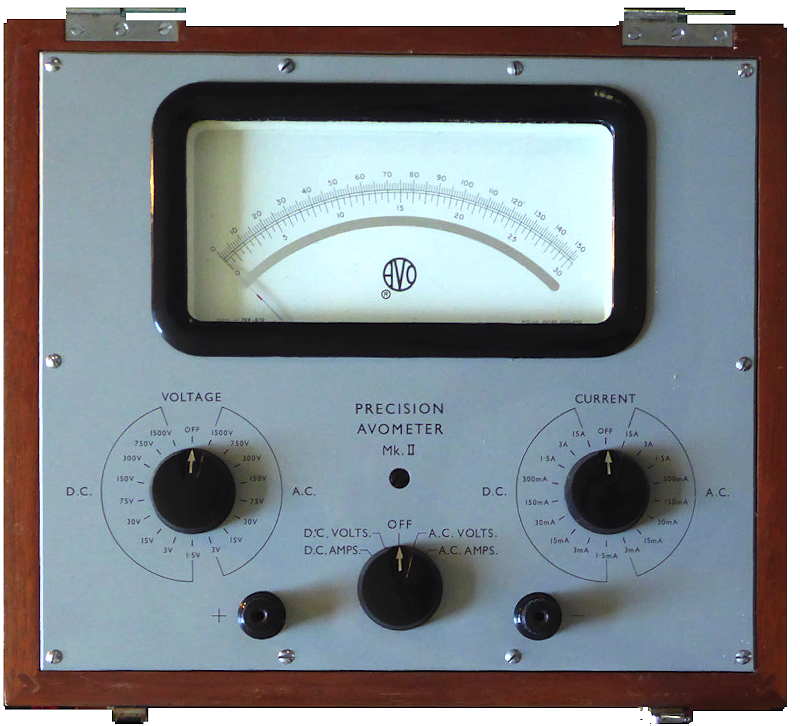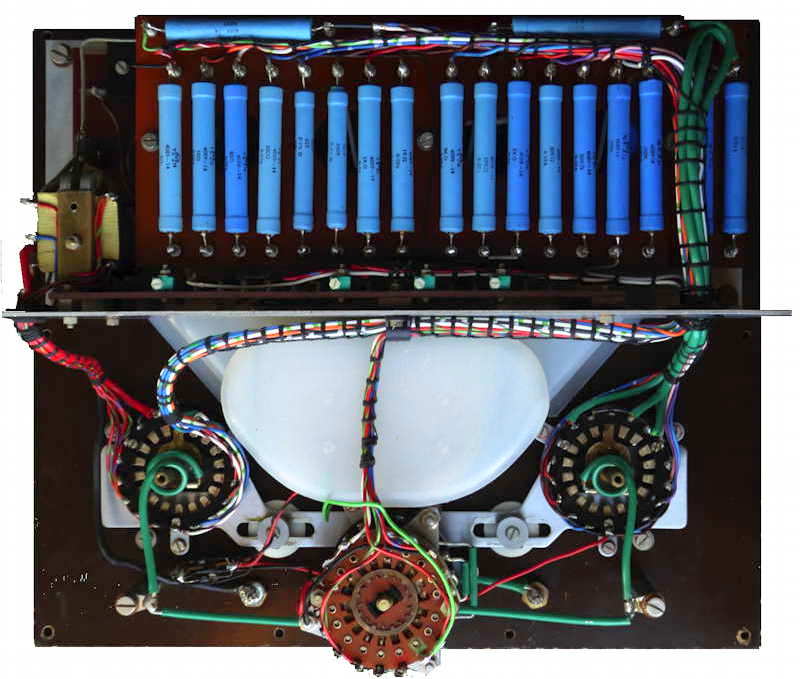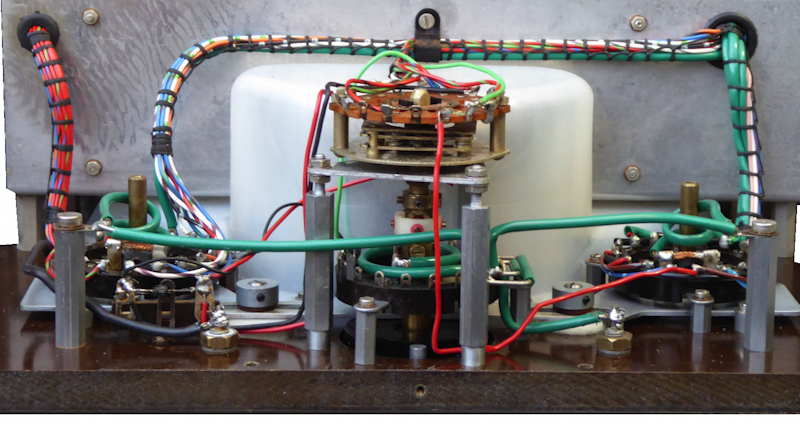
Precision AVOmeter s/n 441-567 working

Precision AVOmeter s/n 441-567 working
This instrument was given to me by Ian Rea in 2013. He rescued from
his place of work some years ago when the calibration department was
closed. The other stuff went in the bin but he didn't have the heart to
chuck this as it's such a beautiful item! It is housed in a highly
polished wooden box which in turn is protected with a translucent
plastic cover. Five leads are contained in the hinged compartment in
the lid of the meter.
It was designed to provide an
accurate and stable local reference or transfer standard for industrial
and laboratory engineers. It meets the requirements of Section 6 of BSS
89/1954 for precision grade instruments ie:
D.C. Voltage ranges 0.3% of f.s.d.
D.C. Current ranges 0.5% of f.s.d
The accuracy on a.c. voltage and current ranges is 0.75% of FSD (form
factor of 1.11) This accuracy is maintained for audio frequency tests
up to 1 kHz on ranges up to 3OOV.
Temperature correction:
true value= 1+.0003(t-20) where t is ambient temperature in degrees
Celsius
Range selection is accomplished by means of two controls
mechanically interlocked with the
third
central control to select voltage or current as required. Two 7 inch
scales calibrated 0
to 150 and 0 to 30 cover both voltage and current measurements. A test
certificate is provided for each instrument.
Ranges
DC
1.5V to 1500V and 1.5mA to 15A
AC 3V to 1500V and 3mA to 15A
Sensitivity 100 Ohms/Volt on DC and AC except for 3V AC range which is
50mA fullscale
Dimensions and weight
155x315x365 mm (not incl. feet) and weight 9.2kg.

The detachable lid houses the connecting leads and the test certificate dated 17/12/1973

The internal construction has echoes of the more workaday AVO meters.
The wire wound resistor boards are supported in a mahogany wood frame and the switches are ingeniously interlocked, the current and voltage selectors cannot be turned until the centre switch is correctly positioned.

The serial number indicates that this meter was made in May 1967.
Adrian Almond who has
a Mk II version (709-670) which is now in full working order
after fixing a
couple of mechanical problems with the interlock mechanism and the
associated range switch has sent me some pictures of his instrument. It
was made in 1970 and is very different inside although externally there
appears to be lmuch the same. Clearly a much less labour intensive
manufacturing process. Andy Gilham
has advised that the development of the resistor board (with the blue
Welwyn type resistors) for the mark 2, was December 1966 so it was
possibly not in production for a further 6 months to a year. This means
that my instrument may have been one of the last with the wire wound
resistors.
Rare
Instrument?
Judging by the dates and serial numbers that I have been able to find
perhaps up to 100 of these meters were manufactured each year:
247-466
272-566
313-1266
441-567 (this one)
589-967
709-670 (Mk2 below)


The
blue resistors have a 0.05% tolerance

Another
view of the interlocking
For further information have a look at my pages on other
Avometers see here

